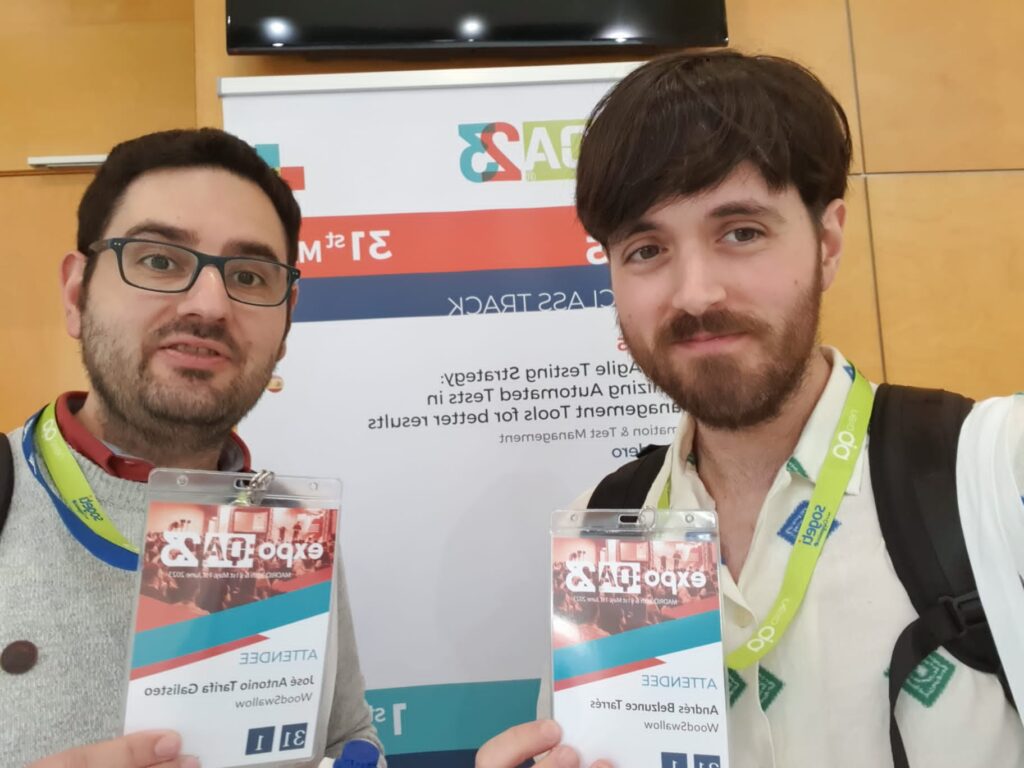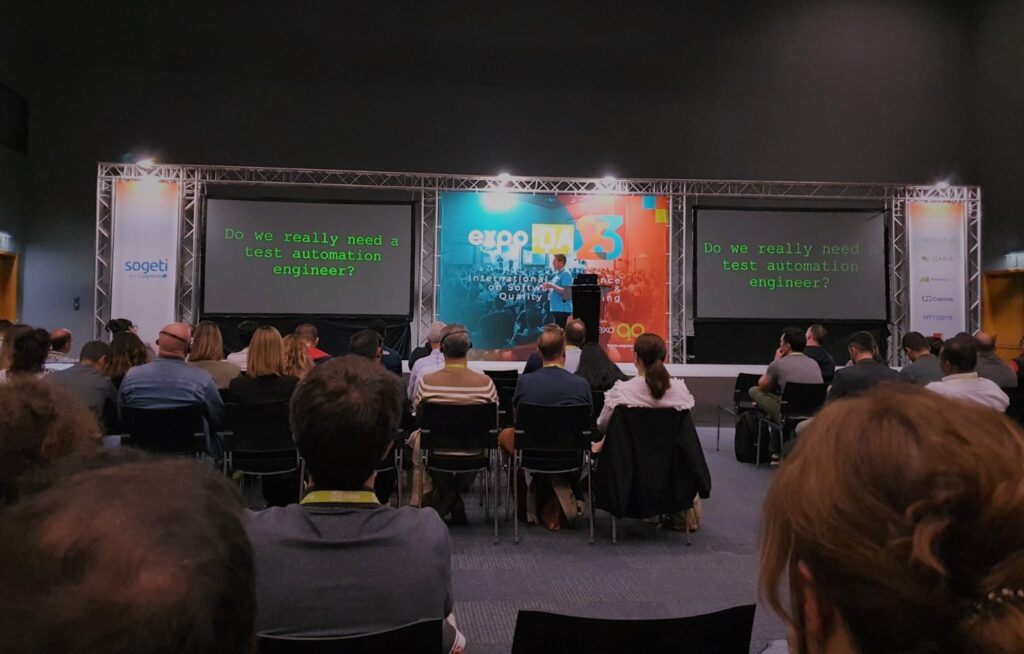- We attended the ExpoQA event on QA and Software Testing and these are our thoughts.

Two of our WoodSwallow colleagues, Test Engineer Andrés Belzunce and José Antonio Tarifa, attended the ExpoQA event held at IFEMA Madrid on 31 May and 1 June. An event that brought together professionals in the area of Software Testing and Quality Assurance (QA). At WoodSwallow we have an experienced team of software and hardware testers and automated testing engineers able to offer complete testing services to our clients.
During the event there were a series of talks, round tables and master classes on the main trends and technologies in the software testing sector, such as automation, artificial intelligence and the evolution of QA in recent years. In this post we share our thoughts and conclusions after two intense days of talks and networking with other professionals in the sector.

Quality as a shared responsibility
One of the most debated topics during the event was the evolution of testing and the role of the tester within a project. Traditionally, the quality of a product (understood as the absence of errors, mainly in the firmware) has been considered to be the responsibility of the testers. However, more and more voices are calling for a change of mentality. QA or the quality of a project (including testing) is a responsibility that should be shared between the different teams, and not just fall to the testing area.
With this in mind, the development team and the testing team should not be isolated from each other. On the contrary, the relationship between both teams should be more fluid in favour of the final quality of the product. One of the ways to achieve this could be the implementation of ‘Exploratory Testing Sessions’, as explained by Julia Durán from Glofox, in her talk “Could team exploratory testing session help you?
These sessions consist of meetings of approximately one hour in which a multidisciplinary group of developers, designers, product managers, SRE (Site Reliability Engineer), and testers are brought together. All of these profiles are involved in these meetings to present and discuss the results of a test, as well as possible problems, evaluations, etc. This type of session allows the concept of quality to be distributed transversally throughout the company and favours an extended vision of what QA entails.
The role of AI in Software Testing
Practically all professionals, are following closely the evolution of artificial intelligence (with more or less enthusiasm, depending on who you ask). Although this technology is still somewhat ‘green’, the software testing sector is already considering the possibilities and advantages it can bring.
According to many professionals, including ourselves, AI can (and should) become another tool to be used to help improve performance and efficiency in testing. To give some examples, AI could be used to rank tests and identify those that tend to give the most failures, and therefore should be prioritised. Or, for example, we could use OpenAI to generate “valid” data sets for testing. Or from the summary of a meeting (e.g. Teams), generate the code blocks to implement, as well as the tests that should be run, etc.
To those who question whether AI will replace the role of testers, we believe that AI alone will not take your job. A tester who uses artificial intelligence (as opposed to a tester who does not) is the one who can take your job. This topic was one of the most talked about during one of the round tables held on the future of AI in the field of testing.
Tony Jull of SogetiLabs, in his talk “Automation, AI and Data Analytics (AAA): Transforming Software Testing and Quality“, explained that AI requires learning, and the desired reasoning should be close to that of a human. “We often talk about AI and algorithms, but we must bear in mind that an AI implies algorithms running in the background, not the other way around. The decisions that an AI makes do NOT have to be the right ones. AI, like any other tool, is made by a person and is therefore subject to errors”. Conclusion: We cannot rely 100% on AIs, as they also make mistakes. We have all heard the case of the famous “ChatGPT” that when it does not have an answer for something, it can invent the sources…
Trends in test automation

Do we really need a Test Automation Engineer?’ asked Bas Dijkstra in his Keynote. The short answer is definitely yes. When we talk about test automation projects, we should keep in mind that “the longer the time between writing the code and writing the tests, the more inefficient the automation will be“. Simply put; automating after writing the code doesn’t work. The right thing to do is to automate as close to writing the code as possible. “Stop Looking to ‘automate your regression tests’. Start supporting your testing & dev with automation”.
Meanwhile, Marcel Veselka from Wopee, gave an interesting talk on the future of testing and how bots can help in automated testing. He talked about the concept of “Turing Bots”: AI-powered software that can help SW developers and, in general, entire development teams to plan, design, build, test and deploy application code. Doesn’t sound bad, does it?
In summary, attending this edition of EXPOQA has been a positive experience that has allowed us to discuss and be in contact with other professionals in the sector, as well as to get to know the point of view and experiences of the speakers regarding the main trends that will have an impact on testing in the coming years.






